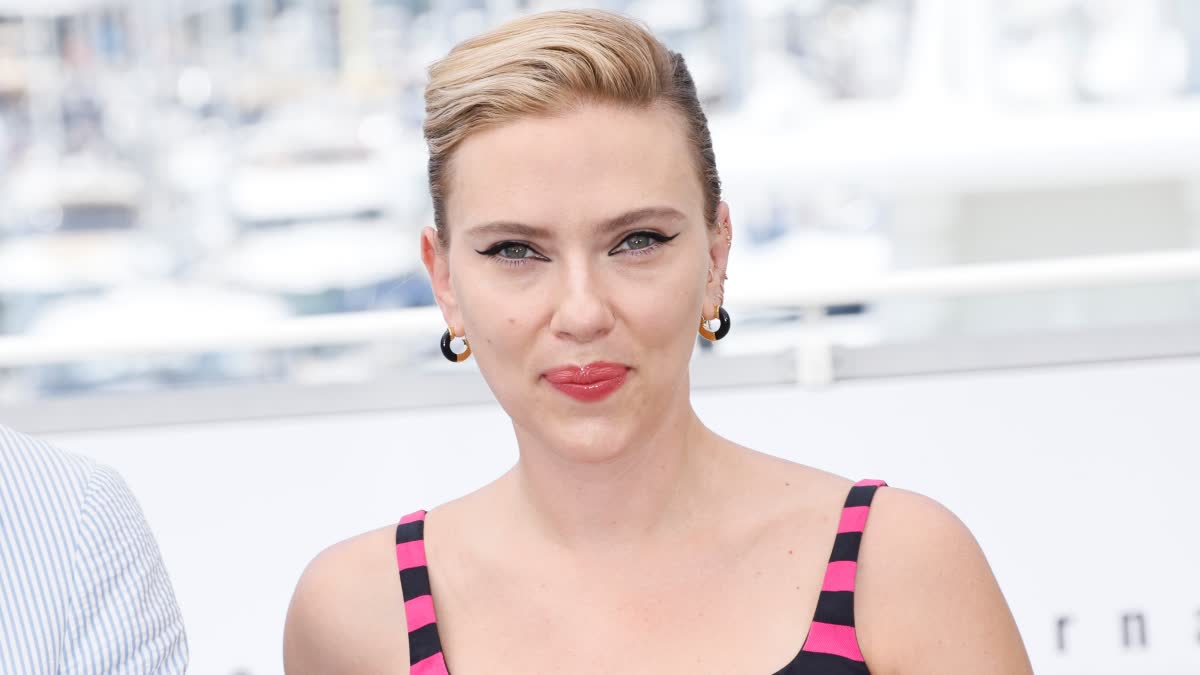NEW YORK: OpenAI on Monday said it plans to halt the use of one of its ChatGPT voices that "Her" actor Scarlett Johansson says sounds "eerily similar" to her own.
In a post on the social media platform X, OpenAI said it is "working to pause" Sky — the name of one of five voices that ChatGPT users can chose to speak with. The company said it had "heard questions" about how it selects the lifelike audio options available for its flagship artificial intelligence chatbot, particularly Sky, and wanted to address them.
Among those raising questions was Johansson, who famously voiced a fictional, and at the time futuristic, AI assistant in the 2013 film "Her."
Johansson issued a statement saying that OpenAI CEO Sam Altman had approached her in September asking her if she would lend her voice to the system, saying he felt it would be "comforting to people" not at ease with the technology. She said she declined the offer.
"When I heard the released demo, I was shocked, angered and in disbelief that Mr. Altman would pursue a voice that sounded so eerily similar to mine that my closest friends and news outlets could not tell the difference," Johansson said.
She said OpenAI "reluctantly" agreed to take down the Sky voice after she hired lawyers who wrote Altman letters asking about the process by which the company came up with the voice.
OpenAI had moved to debunk the internet's theories about Johansson in a blog post accompanying its earlier announcement aimed at detailing how ChatGPT's voices were chosen. The company wrote that it believed AI voices "should not deliberately mimic a celebrity's distinctive voice" and that the voice of Sky belongs to a "different professional actress." But it added that it could not share the name of that professional for privacy reasons.
In a statement sent to The Associated Press following Johansson's response late Monday, Altman said that OpenAI cast the voice actor behind Sky "before any outreach" to Johansson.
"The voice of Sky is not Scarlett Johansson's, and it was never intended to resemble hers," Altman said. "Out of respect for Ms. Johansson, we have paused using Sky's voice in our products. We are sorry to Ms. Johansson that we didn't communicate better."
San Francisco-based OpenAI first rolled out voice capabilities for ChatGPT, which included the five different voices, in September, allowing users to engage in back-to-forth conversation with the AI assistant. "Voice Mode" was originally just available to paid subscribers, but in November, OpenAI announced that the feature would become free for all users with the mobile app.
And ChatGPT's interactions are becoming more and more sophisticated. Last week, OpenAI said the latest update to its generative AI model can mimic human cadences in its verbal responses and can even try to detect people's moods.
OpenAI says the newest model, dubbed GPT-4o, works faster than previous versions and can reason across text, audio and video in real time. In a demonstration during OpenAI's May 13 announcement, the AI bot chatted in real time, adding emotion — specifically "more drama" — to its voice as requested. It also took a stab at extrapolating a person's emotional state by looking at a selfie video of their face, aided in language translations, step-by-step math problems and more.
GPT-4o, short for "omni," isn't widely available yet. It will progressively make its way to select users in the coming weeks and months. The model's text and image capabilities have already begun rolling out, and is set to reach even some of those that use ChatGPT's free tier — but the new voice mode will just be available for paid subscribers of ChatGPT Plus.
While most have yet to get their hands on these newly announced features, the capabilities have conjured up even more comparisons to the Spike Jonze's dystopian romance "Her," which follows an introverted man (Joaquin Phoenix) who falls in love with an AI-operating system (Johansson), leading to many complications.
Altman appeared to tap into this, too — simply posting the word "her" on the social media platform X the day of GPT-4o's unveiling.
Many reacting to the model's demos last week also found some of the interactions struck a strangely flirtatious tone. In one video posted by OpenAI, a female-voiced ChatGPT compliments a company employee on "rocking an OpenAI hoodie," for example, and in another the chatbot says "oh stop it, you're making me blush" after being told that it's amazing.
That's sparked some conversation on the gendered ways critics say tech companies have long used to develop and engage voice assistants — dating back far before the latest wave of generative AI advanced the capabilities of AI chatbots. In 2019, the United Nations' culture and science organization pointed to "hardwired subservience" built into default female-voiced assistants (like Apple's Siri to Amazon's Alexa), even when confronted with sexist insults and harassment.
"This is clearly programmed to feed dudes' egos," The Daily Show senior correspondent Desi Lydic said of GPT-4o in a segment last week. "You can really tell that a man built this tech."



